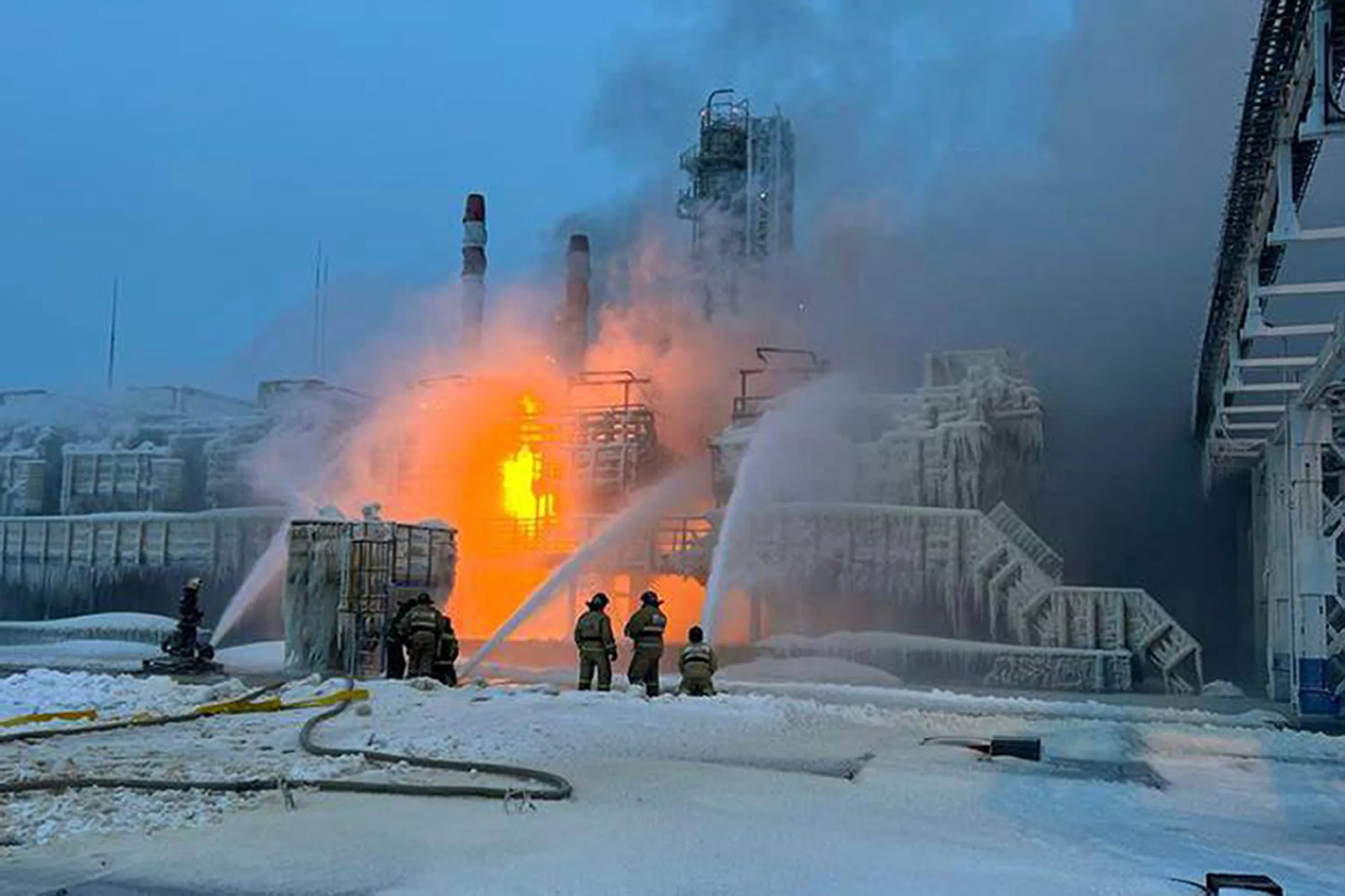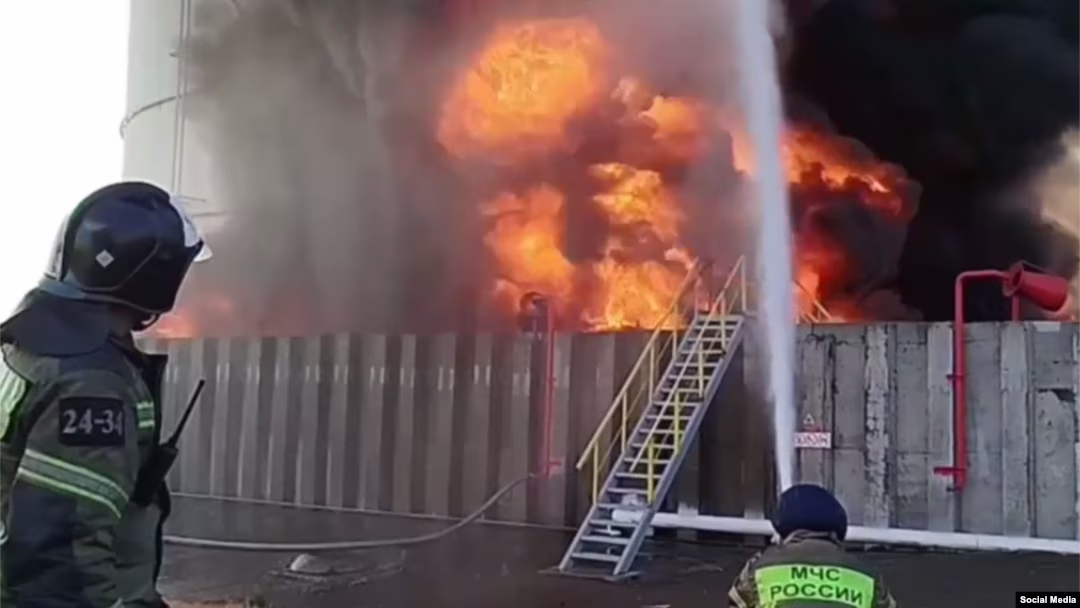Ukrainian drones launched a significant overnight attack deep into Russia, targeting an oil facility linked to a military airfield in Engels, located nearly 400 miles from the Ukrainian border, Ukraine’s military reported on Wednesday.
Officials in Ukraine described a massive fire at the Kombinat Kristall oil depot, which supplies fuel to the Engels-2 military airfield in Russia’s Saratov region. This airfield is home to Russia’s strategic bomber fleet.
Roman Busargin, the governor of the Saratov region, confirmed in a Telegram post on Wednesday that at least two Russian firefighters lost their lives while responding to the blaze. Another firefighter sustained injuries and was hospitalized, according to Busargin.
Images analyzed showed enormous fireballs illuminating the night sky and thick plumes of smoke rising from the site, which continued to burn into Wednesday morning.
“The destruction of the oil depot creates significant logistical challenges for the strategic aviation of the Russian occupiers and greatly reduces their ability to attack peaceful Ukrainian cities and civilian infrastructure,” Ukraine’s military stated.
Throughout the nearly three-year conflict between Russia and Ukraine, long-range drone strikes have become an integral part of Kyiv’s strategy.
As ground warfare has grown more grueling and static, Ukraine has increasingly turned to aerial tactics with notable success, aiming to disrupt Russian supply chains, destroy weapon depots, and ignite fuel facilities.
Wednesday’s strike was not the first time Ukraine targeted Saratov, a city situated over 600 kilometers (375 miles) from Ukraine’s border.
Although Russian air defenses had previously intercepted many such attacks, they were not entirely successful this time.
Busargin confirmed that Saratov and Engels experienced a “massive” drone assault overnight, which caused damage to an industrial site. Ukraine’s military identified the target as the oil depot at the Engels-2 airfield.
Russia’s defense ministry claimed that its air defenses intercepted 23 Ukrainian drones during the attack, including 11 over Saratov and four over the Kursk region, where Ukraine has recently escalated its counteroffensive.

The ministry, however, did not specify how many drones evaded interception in Saratov. Ukraine’s military reported “numerous explosions” in the area.
Oleksandr Kamyshin, an adviser to Ukrainian President Volodymyr Zelensky, noted that the drones used in the long-range operation were produced in Ukraine.
Operating under Ukraine’s defense intelligence, the unit has carried out hundreds of strikes on Russian territory since the war began in February 2022.
On the same night, Russia launched 64 drones at Ukrainian targets, according to Ukraine’s air force.
It reported shooting down 41 of the drones, while 22 failed to reach their intended targets. One drone remained unaccounted for in its assessment.
Later on Wednesday, Zelensky reported on Telegram that a Russian attack on the partially occupied Zaporizhzhia region in southeastern Ukraine had killed at least 13 people and injured dozens more.
The renewed hostilities come as both nations intensify efforts to shift the frontlines, possibly influenced by the potential return of Donald Trump to the White House and speculation about peace talks.
Trump has previously stated he could end the war in a single day, though he has not detailed his plan.
Russia’s defense ministry announced on Monday that its forces had captured Kurakhove, a town in Ukraine’s Donetsk region, as part of its advance toward the strategically vital city of Pokrovsk.
Kyiv, however, disputed these claims, asserting that fighting in Kurakhove was ongoing as of Tuesday.
Meanwhile, Ukraine has renewed its offensive in Russia’s Kursk region, where it has held territory since a surprise incursion last summer.
On Tuesday, Ukraine’s military reported striking a Russian command post near the town of Belaya, with clashes continuing across multiple fronts in the area.
